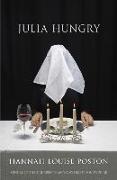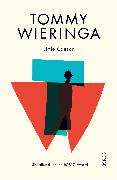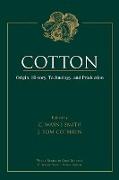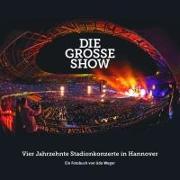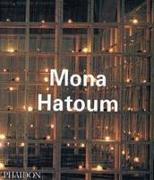Julia Hungry
BücherAngebote / Angebote:
Winner of the 18th annual Anthony Hecht Poetry PrizeJULIA HUNGRY is a communion and reckoning with form--a female poet's apprenticeship to the male-dominated canon of twentieth century verse, part love-affair and part fencing match with its forebears. Inherited forms are intact almost to a fault but flooded with femininity as if in an attempt to rinse them out, in kind, the poems are laced with uneasy domesticity--a current of tension which begins inside the home and expands over the course of the book, eventually reaching a global scale. There, fully haunted by the music of the past, JULIA HUNGRY peers into the future, asking questions about reclamation and survival.Foreward by Linda Gregerson."Pleasure is here aplenty in the pages of this marvelous debut, pleasure in the full spectrum of poetry's musical and figurative enchantments. What keeps me coming back to the poems, however, is not only their lyrical accomplishment, impressive as that may be. No. What keeps me coming back is the amplitude and sheer good company of the author's agile mind."--from Linda Gregerson's foreword"JULIA HUNGRY is canny and powerful, but also hilarious and debased, in the way that undressing a body can reveal both erotic delight and the awkwardness of limbs. With a rare skill for poetic form, Hannah Louise Poston's captivating debut reveals the monstrous--by which I mean the marvelous--lurking within the quiet spaces of the kitchen or the garden: 'Womanhood reared / its ugly head, ' writes Poston, brilliantly, 'head that doubles / each time it's severed.'"--Tung-Hui Hu"Hannah Louise Poston startles her readers into understanding even their most basic perceptions newly--in the kitchen, " she writes, 'it smells like old pears / as if a thumb pressed gently on the surface of the air / would poke a fissure through to warm rot, ' and one feels as if one for the first time understands smell. But perhaps more important than that particular understanding is the awareness of the unification of senses--in the simile, the sense of smell and the sense of touch--one derives from the lines. In JULIA HUNGRY, Poston's is a unifying vision--not naively so, but in response to a world of discontinuities. JULIA HUNGRY is a healing book that makes its wound."--Shane McCrae"Not since Auden has pastiche been handled like this."--Jesse Nathan, author of EggtoothPoetry.
Erscheint im März
